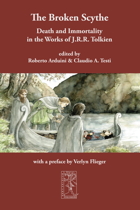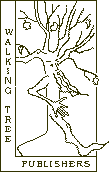Review of The Broken Scythe

 (to the main page on The Broken Scythe)
(to the main page on The Broken Scythe)
The following review by Patrick Curry was published in the Italian online magazine Endòre (www.endore.it) and is reproduced here with kind permission.

Review of The Broken Scythe: Death and Immortality in the Works of J.R.R. Tolkien, ed. Roberto Arduini and Claudio A. Testi (Zurich and Jena: Walking Tree Books, 2012)
by Patrick Curry
This collection of papers is of the highest quality, and its contributors bring to bear their sober and well-informed perspectives on an extremely important subject. Important, that is, to everyone without exception, as well as that subset comprised of Tolkien scholars and aficionados.
It is no secret that Tolkien himself considered 'Death and the desire for deathlessness' the most fundamental theme, so to speak, of his fiction; so it is not before time that an entire collection has appeared devoted to it. The contributors appear well-placed to comment, being not only expert on Tolkien's works (lesser as well as greater) but unusually philosophically and theologically knowledgeable. Together with the publisher, they are to be congratulated for thus enriching Anglophone Tolkien scholarship.
I would add that the interest of the book also extends well beyond Tolkien studies, insofar as it brings out the results and implications of this brilliant and learned scholar's lifelong struggle with some of the deepest questions at the heart of theology and philosophy.
I don't propose to comment on individual papers but rather on the issues they raise as a whole. One thing that becomes clear, at the most general level, is the extraordinary extent to which the fates of Elves and human beings are entwined. (Incidentally, I don't find the continued use of 'Men' to signify all humans acceptable. It was normal in Tolkien's time but is no longer, and rightly so.) I hadn't realised either the fundamental symmetry of the two – with humans longing for escape from death, while Elves long for release from the circles of the world – or all the complexities and subtleties which these papers do such a good job elucidating. For example, Elves 'die' but not, despite obvious commonality, in the same sense we do. And it seems that when the world finally ends, Elves too will face a kind of death, beyond which they cannot see clearly any more than we can ours.
In terms of how we are to understand the Elves and their (qualified) immortality, as Tolkien presents them, I wonder if they should be approached as an aspect of humans, in effect, just as hobbits are (by Tolkien's own admission), and the other 'races' of Middle-earth may be considered to be. Or should they be treated as a complete contrast and foil to us? It's not a trivial question, because each treatment would yield different if overlapping lessons.
Understandably, given Tolkien himself, contributors' analyses are often dominated by theological and specifically theistic considerations. It might be a good idea, however, to keep somewhere in mind that unsurprisingly, given the universality of death as a human concern, as distinct from Christianity, whose 'catholicism' remains a permanent ideal rather than a reality, other possibilities co-exist. For example, in his Tractatus Logico-Philosophicus, Ludwig Wittgenstein observed that 'If we take eternity to mean not infinite temporal duration but timelessness, then eternal life belongs to those who live in the present.' Now 'infinite temporal duration' is clearly identical with what Tolkien calls 'limitless serial longevity' or 'endless serial living'; yet Wittgenstein's alternative is susceptible to a very different construal: Buddhist, say, or simply mystical. In any case, while it doesn't rule out a divinity, neither does it require one. But even this point is not simple: one road to living in the present might well be strong Christian faith.
I would like to register a couple of what are not exactly disagreements, more qualifications. The first is this: granting death and deathlessness its central importance in Tolkien's work should not be allowed to encourage the notion that Power (or Magic, or the Machine) are unimportant; and this for three reasons. First, it would be simpleminded to the point of stupidity, betraying the rich complexity of the tales themselves. (To dismiss power as mere literary machinery – as Tolkien himself comes perilously close to doing – is to risk turning the stories into a mere vehicle for a Message; that is, an allegory.) Two, power is inseparably bound up with death because it is the mode of choice par excellence for those (and they are many and powerful) who seek to avoid death, the ultimate exemplar being the Ring of Sauron. In lived experience, therefore, as well as collective history, Death and Power cannot be cleanly separated. Three, we needn't be entirely bound by Tolkien's own opinion of the matter. Not only did he give various 'explanations' for his literary creations at different times: the desire of a storyteller to try his hand at a long and gripping tale, the need to supply a plausible imaginal world for his invented languages, the working out of deeply-held Christian beliefs for a post-Christian audience, and so on. Even more to the point is the fact that even though his own view of his work as a meditate mortis is undoubtedly true, it is not so exclusively. Indeed, to take it that way would privilege precisely 'the purposed domination of the author' that Tolkien rightly subordinates to the reader's right to find in the story 'applicability'.
My second reservation concerns the view, repeated throughout the collection, that the Elves were guilty of evading the challenge of 'living in the present', preferring instead to indulge in an ultimately futile effort to preserve the past. Although if death is not an Elvish problem but a human one, why shouldn't they be nostalgic? Surely it only becomes a problem if Elves are honorary humans and therefore shouldn't do what we shouldn't, or else they are simply setting a bad example for us by being 'fainéant'.
Be that as it may, I agree that this Elvish tendency is broadly unhelpful. Oddly, only once is it mentioned by any of the contributors that the power of the Three Rings to preserve and heal declines with the destruction of the ruling One Ring: a point that confirms their thesis that both strategies, the will-to-power that results in endless serial living and the attempt to preserve the sandcastles of the past from the tides of time, are mistaken and harmful.
But not equally so. It is overstating the case (or overegging the pudding: a more hobbitic way to put it!) to imply, as Andrea Monda in particular comes close to doing, that the Elves' weakness – which is a falling away from real and vital powers, as symbolised by each of the Three Rings – works in the same way or to the same end as the murderous and nihilistic exercise of power symbolised by the One Ring. If that isn't obvious, let me list some reasons. One, the Company of the Ring that opposes the Enemy includes an Elf; it does not include a Ringwraith. Two, the Elves are clearly portrayed by Tolkien as beings whose virtues can equally well be characterised as some of the very best, highest and noblest of human attributes. Third, when Tolkien says (in letter 165), apropos what moves him about The Lord of the Rings, that 'the heart remains in the description of Cerin Amroth', are we to dismiss it as either trivial or mistaken? That description indeed comprises one of the most moving chapters in the book, and with good reason. Fourth, as I showed in Defending Middle-Earth, there is such a thing as radical nostalgia that moves people to actively defend the good. Finally, Bilbo and Frodo, at whose hands (together with Gollum's) the Ring meets its end, are the most Elvish or 'intellectual' of hobbits, and are clearly identified by Tolkien as such.
In short, the essays in this collection are too hard on the Elves, or on Elvishness. But that, as I said, is merely a qualification of what is a most worthy and admirable book.

Read other reviews of The Broken Scythe
Read reviews of other Walking Tree Publishers books

